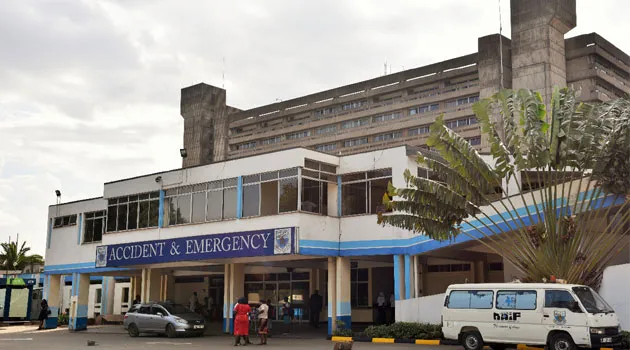Tragedy has once again struck Kenyatta National Hospital (KNH), the country’s largest referral facility, following the brutal killing of a male patient inside a hospital ward. The victim, said to be physically disabled, was found dead in his bed in Ward Seven on Thursday, July 17, with his throat slit.
Police and hospital officials confirmed the incident and have since launched a full-scale murder investigation. According to witnesses, an unidentified intruder allegedly entered the ward and attacked the patient. The motive remains unclear.
Kilimani Police Commander Patricia Yegon and DCI’s Hussein Mahat led officers at the scene as homicide detectives gathered evidence. Mahat stated that the incident is being treated as a murder, and no arrests have been made so far. Police are currently reviewing CCTV footage from the hospital corridors to identify any suspects. Due to privacy policies, no cameras are installed inside patient rooms.
This marks the second such incident at KNH this year. On February 7, 2025, 39-year-old Gilbert Kinyua Muthoni was also found dead in a hospital bed with a similar throat injury. An autopsy revealed he had not been moved for long hours, suggesting neglect. That case remains under investigation.
The latest killing has raised urgent concerns over security lapses at the hospital. A similar case occurred in November 2015 when 42-year-old Cosmas Mutunga Kenyatta was found murdered in Ward 8C. Mutunga had been stabbed 42 times, his skull fractured, and his eye gouged out in one of the most violent attacks recorded in a Kenyan hospital.
KNH has yet to issue an official statement regarding the most recent incident. Meanwhile, police have questioned hospital staff, security officers, and other patients. DNA samples have been collected, and detectives are keen to determine whether the killer was a patient, staff member, or outsider.
As families of patients express growing fear, calls for enhanced surveillance, patient protection, and accountability at KNH continue to mount, urging the government to take swift action to restore safety and trust in public healthcare institutions.

